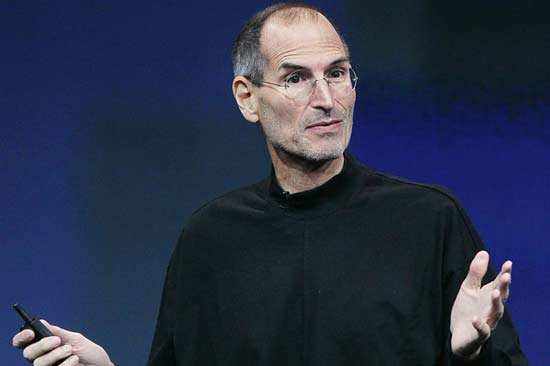So Jobs set out to create an "iTunes Store" and to persuade the five top record companies to allow digital versions of their songs to be sold there.
就这样,乔布斯开始创立“iTunes商店”,并争取五大唱片公司的数字音乐的销售权。
"I've never spent so much of my time trying to convince people to do the right thing for themselves," he recalled.
他回忆道:“我从来不会花太多时间去说服人们做对自己有利的事。”
Because the companies were worried about the pricing model and unbundling of albums,
这些公司都担心定价模式和专辑的拆分,
Jobs pitched that his new service would be only on the Macintosh, a mere 5% of the market.
乔布斯回应说这项新服务只会在麦金塔上使用,只占有5%的市场。
They could try the idea with little risk.
虽有小小的风险,但可以尝试。

"We used our small market share to our advantage by arguing that if the store turned out to be destructive it wouldn't destroy the entire universe," he recalled.
他说:“我们把市场份额小作为优势来说服音乐公司,即使iTunes商店失败了,也不会造成太大损失。”
Jobs's proposal was to sell digital songs for 99 cents -- a simple and impulsive purchase.
乔布斯计划把每首歌曲的价格定为99美分--这是个简单又容易让人心动的价格。
The record companies would get 70 cents of that.
唱片公司将从中抽取70美分。
Jobs insisted that this would be more appealing than the monthly subscription model preferred by the music companies.
乔布斯坚持认为,这种做法比音乐公司喜欢的月度订阅的模式更有吸引力,
He believed that people had an emotional connection to the songs they loved.
因为他认为,人们和他们喜欢的歌曲之间有一种情感联系。
They wanted to own "Sympathy for the Devil" and "Shelter from the Storm," not just rent them.
他们希望拥有《给恶魔的同情》和《暴风雨中的庇护》而不仅仅是租用。
As he told Jeff Goodell of Rolling Stone at the time,
他对《滚石》杂志的杰夫·古德尔说:
"I think you could make available the Second Coming in a subscription model and it might not be successful."
“我觉得也可以发起第二波订阅服务模式,但是它恐怕不会成功。”













